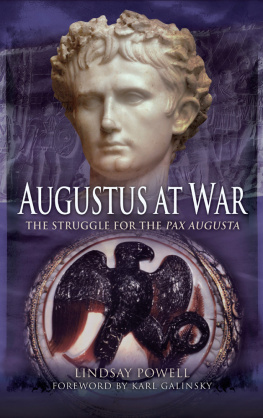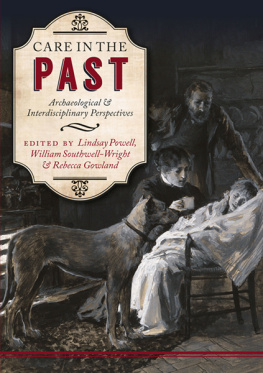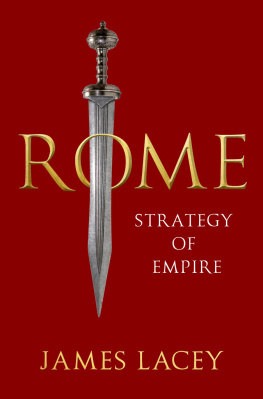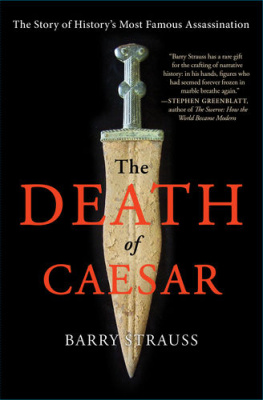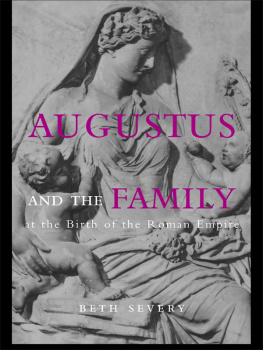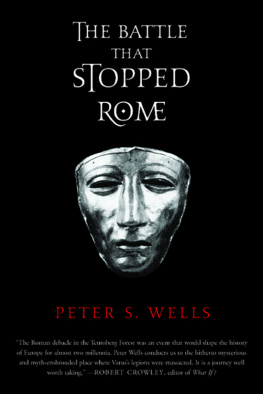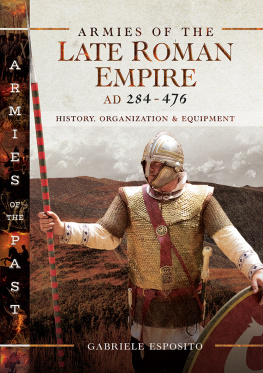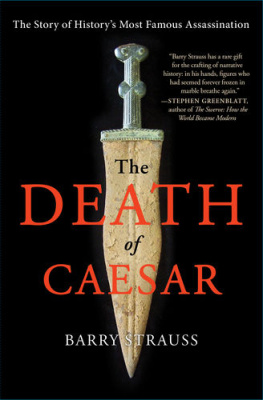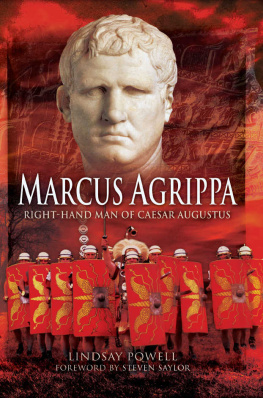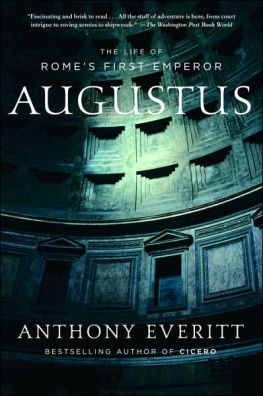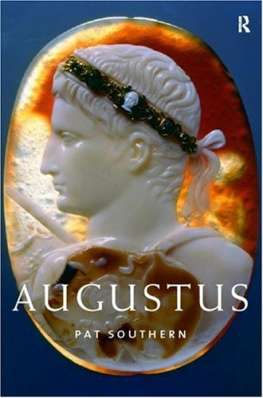Pagebreaks of the print version

AUGUSTUS AT WAR
Other titles by Lindsay Powell
ALL THINGS UNDER THE SUN
How Modern Ideas Are Really Ancient
CAMPAIGN
The Bar Kokhba War AD 132136:
The Last Jewish Revolt Against Imperial Rome
COMBAT
Roman Soldier versus Germanic Warrior, 1st Century AD
EAGER FOR GLORY
The Untold Story of Drusus the Elder, Conqueror of Germania
GERMANICUS
The Magnificent Life and Mysterious Death of Romes Most Popular General
MARCUS AGRIPPA
Right-Hand Man of Caesar
AUGUSTUS AT WAR
The Struggle for the Pax Augusta
LINDSAY POWELL
Foreword by
Karl Galinsky
First published in Great Britain in 2018 by
PEN & SWORD MILITARY
An imprint of
Pen & Sword Books Ltd
47 Church Street
Barnsley
South Yorkshire
S70 2AS
Copyright Lindsay Powell, 2018
ISBN 978-1-78383-184-5
eISBN 978-1-47389-005-3
Mobi ISBN 978-1-47389-004-6
The right of Lindsay Powell to be identified as the author of this work has been asserted by him in accordance with the Copyright, Designs and Patents Act 1988.
A CIP catalogue record for this book is available from the British Library.
All rights reserved. No part of this book may be reproduced or transmitted in any form or by any means, electronic or mechanical including photocopying, recording or by any information storage and retrieval system, without permission from the Publisher in writing.
Pen & Sword Books Ltd incorporates the imprints of Pen & Sword Archaeology, Atlas, Aviation, Battleground, Discovery, Family History, History, Maritime, Military, Naval, Politics, Railways, Select, Social History, Transport, True Crime, and Claymore Press, Frontline Books, Leo Cooper, Praetorian Press, Remember When, Seaforth Publishing and Wharncliffe.
For a complete list of Pen & Sword titles please contact
PEN & SWORD BOOKS LIMITED
47 Church Street, Barnsley, South Yorkshire, S70 2AS, England
E-mail:
Website: www.pen-and-sword.co.uk
In memoriam
Sonia St James
(19422015)
Friend and Muse
Foreword
by Karl Galinsky
War and military affairs were a major, if not the major, determinant of the man who gave his name to Pax Augusta . Espoused and promoted by Christians from early on, who saw divine providence at work in the birth of Jesus during the Augustan reign, the notion of the Prince of Peace took hold and was not easily dislodged. Among secular scholars, it received its ostensible support by Augustus advice to his heir Tiberius to confine the empire within its limits ( consilium coercendi intra terminos imperii; Tacitus, Annals 1.11) and the statement, if it was indeed made in those terms, resonated with Americans who found a kindred mentality in George Washingtons farewell address that warned the United States to avoid foreign entanglements. That, of course, was not exactly what happened in subsequent American history, nor was it the case in Rome. The context in which Augustus issued that counsel, to put it charitably and realistically, points to some relativizing factors. It came after decades of war and conquest and it was given to a man who was Augustus premier general and therefore knew about the limits of any such advice.
Still, the prince of peace image prevailed and, with it, the notion that Augustus many wars and there was no denying them were basically defensive. That presumption began to be shattered in 1972 by Colin Wells careful and detailed analysis of Augustus frontier policy in Germany. On a more public and popular level, the perception that the Pax Romana was a matter of war surfaced in John Kennedys landmark speech on his administrations strategy of peace in 1963; he eschewed a Pax Americana enforced on the world by American weapons of war. What, then, did Augustus himself say about war and peace?
He could not have made himself clearer and there was no disconnect between actions and words. Much has been written about the purpose of the lengthy account of his deeds, time, Augustan monuments and art in Rome did not engage in extended sculptural glorifications of victorious Roman armies and defeated enemies we are a century away from the Column of Trajan. The absence of such themes in his masterful deployment of the power of images has tended to reaffirm the impression of Golden Age sweetness and light under Augustus, but why overload the message of peace through victories? He did not need to.
Did he need the army? It has often been claimed that when all is said and done, his power ultimately rested on the military. That certainly was true of his earlier incarnation as Octavian and, of course, as Augustus he resolutely remained as commander in chief. As in all things Augustan, there are numerous layers and facets here and Lindsay Powell does his customary superior work elucidating many of these aspects while having, as always, his boots on the ground. Augustus never had to use the army to put down a popular rebellion against his rule or one instigated by rivals, and its simply wrong to situate the importance of the army there. Instead, its business was war and wars that went on for the entire duration of his reign, from 31 BCE to 14 CE. They are the subject of this book.
The end of the civil wars, with the conquest of Alexandria in 30 BCE, provided a major juncture. Here was an army of some half million soldiers that had been used to and for internecine war. One of the major accomplishments of the incipient emperor was to retire these troops and it took a while and replace them with an army that would resume fighting against external enemies. The resulting economy of force, now numbering some 300,000 soldiers, has rightly provoked the attention not just of Roman historians ancient and modern, but of specialists of military strategy, such as Edward Luttwak. In this book, Powell meticulously details and analyzes the composition, deployment, and actions of this army and provides a much needed resource of information that has no parallel in astute comprehensiveness.
There is so much more here, therefore, than a catalogue raisonn of the legions, their men, their leaders, their equipment, and so on. The central issue, as the title says, is Augustus at war, an essential and fascinating aspect of the man. Catapulted onto the stage of world history at the age of 18, his military rsum was as blank as his administrative one. Yet his success against Antony and others was largely due to his superior use of force and at the age of 33, he was in control of all affairs as he put it in Res Gestae 34.1; the Latin phrase potens rerum omnium again implies his dominance in the military realm, too. And he was not about to relinquish that ultimate power, even while re-involving the Senate and People in the government of the . What followed was an elaborate game of strategy on several fronts. Military historians have tried to differentiate the unceasing sequence of Augustan wars in terms of conquest or consolidation. This can be matter of rich discussion and individual judgment though we can be reasonably sure that such semantics were probably of little import to the conquered.
Political considerations played a major role though, typically, in a more complex way than for the generalissimos of the Republic. During that era conquest and wars were driven greatly by the quest for individual glory and renown, to be memorialized by the victory temples that lined the triumphal route. Strategy was piecemeal and the resulting empire was an amalgam of territorial acquisitions that had often been conquered impulsively. Augustus strategy was more comprehensive. Certainly, he cast himself in the tradition of his Republican predecessors; military achievements were essential for maintaining his auctoritas , but with some exceptions, such as the failed expedition to the south of the Arabian peninsula a more cohesive overall framework evolved, parallel to that of making the provinces a more integral part of the empire in more than territorial ways. And there was a new twist: by agreement with the Senate, provinces that were certifiably pacified would return to senatorial control, along with the legions stationed in them. In other words, this would mean at least a technical loss of control by Augustus over those army contingents. It was paramount, therefore, from Augustus perspective to demonstrate that the work of pax Augusta was never done and military actions needed to be ongoing. They were.

